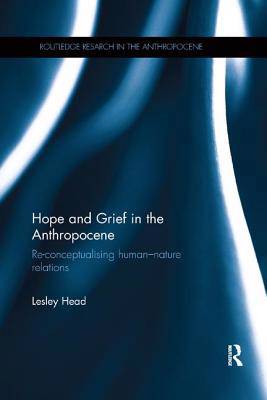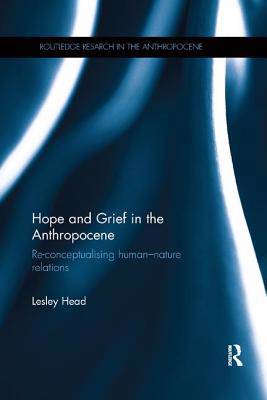
- Afhalen na 1 uur in een winkel met voorraad
- Gratis thuislevering in België vanaf € 30
- Ruim aanbod met 7 miljoen producten
- Afhalen na 1 uur in een winkel met voorraad
- Gratis thuislevering in België vanaf € 30
- Ruim aanbod met 7 miljoen producten
Omschrijving
The Anthropocene is a volatile and potentially catastrophic age demanding new ways of thinking about relations between humans and the nonhuman world. This book explores how responses to environmental challenges are hampered by a grief for a pristine and certain past, rather than considering the scale of the necessary socioeconomic change for a 'future' world. Conceptualisations of human-nature relations must recognise both human power and its embeddedness within material relations. Hope is a risky and complex process of possibility that carries painful emotions; it is something to be practised rather than felt. As centralised governmental solutions regarding climate change appear insufficient, intellectual and practical resources can be derived from everyday understandings and practices. Empirical examples from rural and urban contexts and with diverse research participants - indigenous communities, climate scientists, weed managers, suburban householders - help us to consider capacity, vulnerability and hope in new ways.
Specificaties
Betrokkenen
- Auteur(s):
- Uitgeverij:
Inhoud
- Aantal bladzijden:
- 196
- Taal:
- Engels
- Reeks:
Eigenschappen
- Productcode (EAN):
- 9781138547148
- Verschijningsdatum:
- 6/02/2018
- Uitvoering:
- Paperback
- Formaat:
- Trade paperback (VS)
- Afmetingen:
- 156 mm x 234 mm
- Gewicht:
- 281 g

Alleen bij Standaard Boekhandel
Beoordelingen
We publiceren alleen reviews die voldoen aan de voorwaarden voor reviews. Bekijk onze voorwaarden voor reviews.









